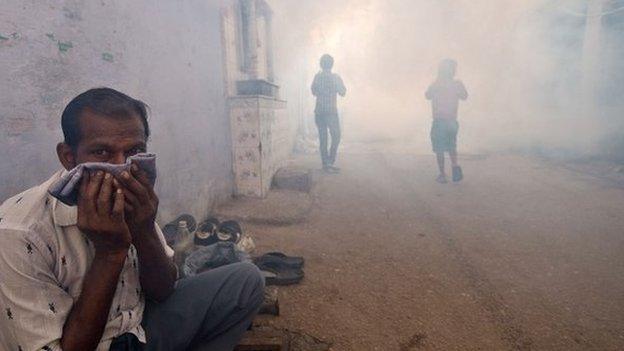Delhi hospitals denying dengue treatment to be penalised
- Published
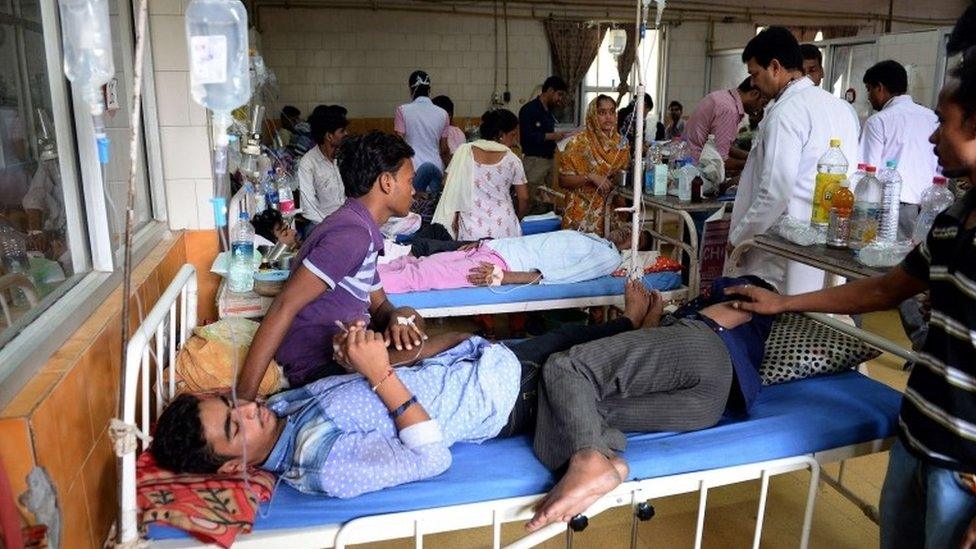
More than 1,800 cases have been recorded in recent weeks
The state government in the Indian capital, Delhi, has threatened to penalise hospitals after reports that they turned away dying children suffering from dengue fever.
Two families have alleged in recent days that their children died after being denied treatment at hospitals.
Delhi is in the grip of the worst outbreak of dengue fever in five years.
More than 1,800 cases have been recorded in recent weeks, compared to 1,695 cases for all of 2010.
Eleven deaths have been reported so far.
Authorities have ordered surprise checks at private hospitals to ensure they do not turn away dengue patients and leaves of doctors have been cancelled as hospitals have been flooded with sick people.
The order came after reports that two children died after prominent city hospitals refused to admit them.
'Heartbreaking'
On Tuesday, Chief Minister Arvind Kejriwal made surprise visits to some hospitals and said action would be taken against those who turn away dengue patients, The Hindu reported, external.
"It is heartbreaking. We have become blind in the race to make more and more profit. We shouldn't forget our humanity," he was quoted as saying.
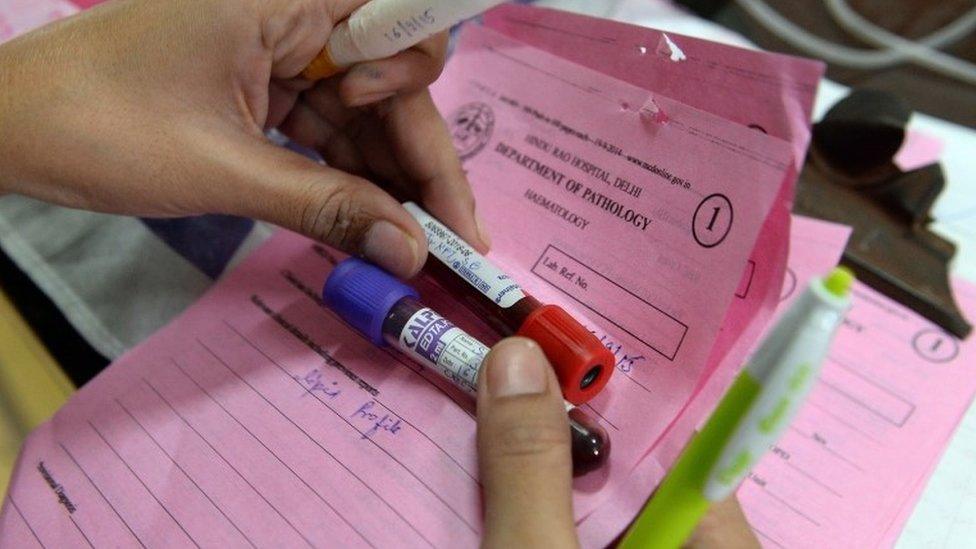
Dengue cases usually peak during and just after the rainy season
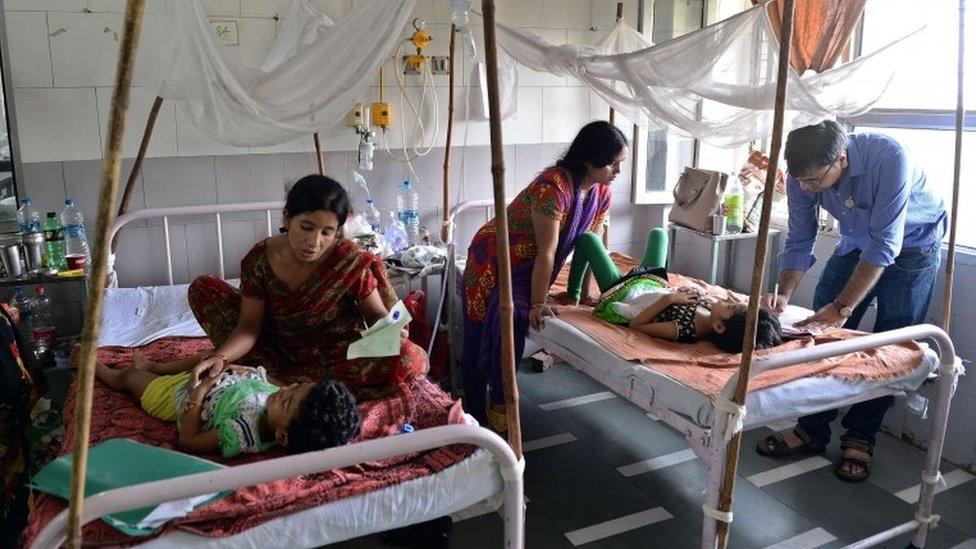
Hospitals and clinics across the city have been inundated with patients
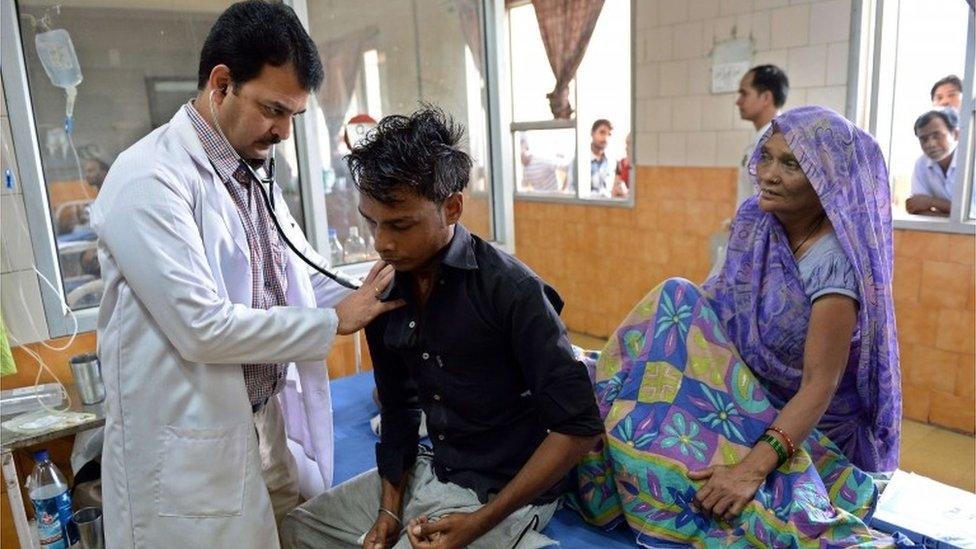
The government has ordered the setting up of 'fever clinics' at hospitals to deal with the rush of patients
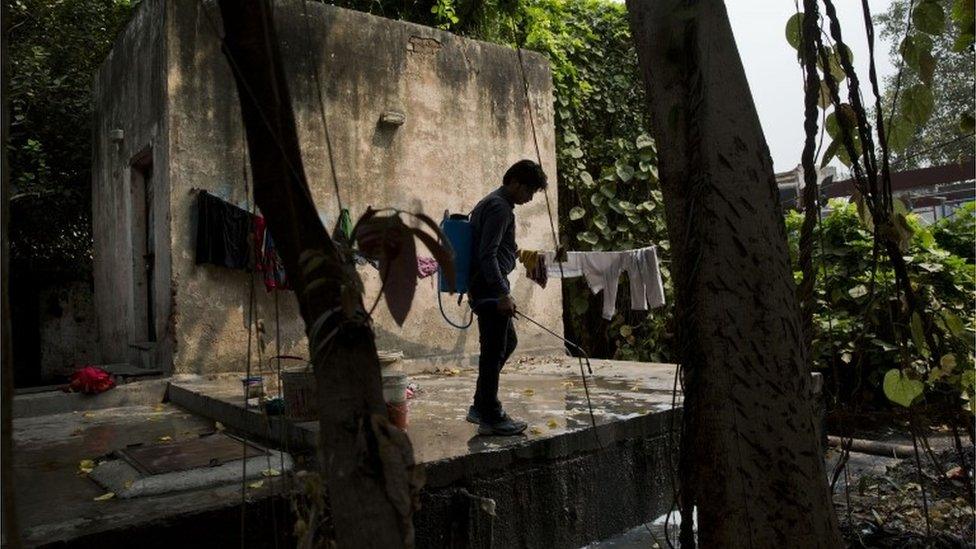
A municipal worker sprays disinfectants on sewage water near a hospital in Delhi to prevent mosquitoes from breeding
"We are planning to come out with a law so that hospitals refusing treatment to an emergency patient can be penalised. In the next couple of days, we will call a special session of the legislative assembly to bring in the law."
The government's move comes after a couple jumped to their death from a four-storey building, external in Delhi last week, two days after their son died of the fever.
The authorities ordered a magisterial inquiry into the death after media reported that the boy was refused admission at five private hospitals. The reports sparked outrage and anger in the city.
The mosquito that carries the dengue virus breeds in containers with clear, stagnant water.
Dengue cases usually peak during and just after the rainy season, which normally lasts from June to September.
Monsoon rains provide more breeding grounds for disease-carrying mosquitoes, who lay their eggs in stagnant water, including pots of clean water, puddles and open sewage drains.

Dengue fever
Dengue fever is prevalent in sub-tropical and tropical regions, including South East Asia and South America
It is a major cause of illness worldwide, causing about 100 million episodes of feverish illness a year
Symptoms include high fever, aching joints and vomiting
Complications can prove fatal in extreme cases
There are four major strains of the virus

- Published14 October 2013
